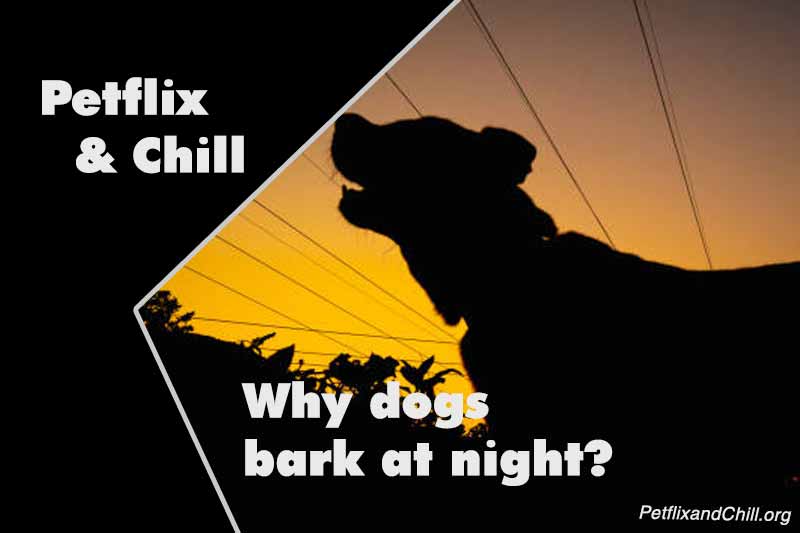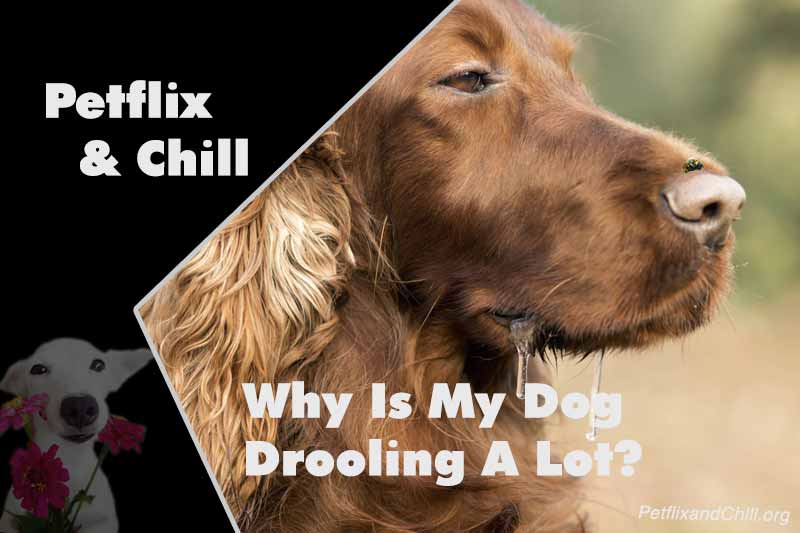Have you ever wondered why dogs bark at night when everything seems quiet? Is the late-night chorus random? However, there may be some reasons behind your pets’ after-dark barking. Dogs could alert you to nearby movement, crave attention, or feel lonely. Sometimes, it’s a sign of discomfort or boredom.
Do you want a good night’s sleep for both you and your pup? Let’s dig into this article to explore the reasons for that nighttime noise and practical tips to help your furry friend settle down!
Why Dogs Bark At Night: 7 Common Causes
One of first-time pet owners’ most frequently asked questions is, “Why does my dog bark at nothing at night?” These canines can detect sounds and sights while humans can’t. If you see your pup vocalize at night, it may be due to one of the following reasons:
Reason 1: Alerting to Sounds or Intruders

Dogs are among animals that have sharp senses, especially hearing. They can detect high-pitched sounds and distant noises that humans can’t. That’s why your pets may suddenly turn vocal after sundown while you don’t hear or see anything.
Whether it’s a slight noise from car engines, footsteps, distant sirens, voices from nearby streets, or wildlife, your dogs can hear it. They become alert and bark as a way of warning off a potential threat to the owners, but in fact, there is no real danger.
Furthermore, group barking is also familiar in dogs, especially in quiet nighttime settings. One dog hears something and reacts. Others nearby follow, not wanting to miss the message. Such pack instincts reinforce their feelings of safety and social bonding.
Reason 2: Seeking Attention
As you know, dogs are brilliant and can learn quickly. Suppose you give them a reaction whenever they bark, such as a belly rub, treat, or eye contact. They realize that barking rewards them and start using it to get attention. Gradually, this behavior becomes a habit, particularly if it works.
When you ignore your dogs, they may bark even louder or longer out of frustration. They’re making an effort to interact and might be unsure why their signals are being missed.
In this case, nighttime barking is a learned behavior rather than a random act. It’s your pet’s way to draw your attention, especially if they feel restless or overlooked.
Reason 3: Separation Anxiety or Loneliness

Dogs are naturally social animals. They can feel isolated when you leave them alone for a long time or do not give them enough attention during the day. This emotional stress may happen at night through excessive barking.
Additionally, if your pets have experienced changes in their living environment or daily routine, they can feel anxious. A new home, puppy, or a recent move can disrupt their sense of security.
Barking at night is common in puppies or newly adopted dogs because they are sensitive to changes. Their nighttime noise is a way to express their fear or loneliness.
Reason 4: Medical Issues or Discomfort
Why does my dog bark at night? Sometimes, it indicates that your pet is in pain or feeling unwell. If you find this behavior unusual, it isn’t just a habit-it is a sign of underlying health issues. Dogs can’t talk, so barking is their way to explain their discomfort.
In particular, senior dogs may develop age-related problems such as cognitive decline, joint pain, or muscle stiffness. These diseases cause confusion or restlessness at night, increasing barking. Feeling discomfort at night makes your pets sleep harder.
Apart from internal factors, some external potential causes disturb your dog’s comfort and prompt nighttime noise. It can be a strange smell, noise, pets, or person.
Reason 5: Boredom or Lack of Mental Stimulation

Unlike other animals, dogs require activities to stay balanced. They can feel unhappy if you don’t provide enough playtime or walks. Lack of physical stimulation in the daytime makes them bark at night to release excess energy. Boredom or frustration is frequently the root cause of this behavior.
Reason 6: Hunger, Thirst, or Need to Go Outside
Why do dogs bark at night? If your dog feels hungry or thirsty, it may bark to communicate its discomfort, especially if its last meal is too early, or its water bowl is empty.
Some dogs may not get enough nutrients or maybe food-sensitive, which is unsettling at night. Poor-quality diet or long gaps between meals can cause restlessness, which often leads to barking. A dog that dislikes its food may also refuse to eat enough, leading to nighttime hunger.
Another cause of nighttime noise in dogs is the need to go outside. You can see this behavior often if you have puppies or older dogs. They may struggle with bladder control and could bark to alert their owner. If you ignore them, the barking may grow even louder or more frequent.
Reason 7: Territorial Behavior

Why do dogs bark at nothing at night? Dogs are among territorial animals. They often bark at night as a way to defend their space. If they hear something unfamiliar, like a passing person or animal, they bark to warn it off. This vocal response signals to other animals or people that this area is theirs.
How to Reduce or Stop Your Dog Barking at Night?
Nighttime barking can disrupt everyone’s rest. Want to have a peaceful night’s sleep? Here are some practical ways to help your dog stay calm and quiet after dark:
Provide Soothing Sounds or White Noise
Does your dog’s barking come from outside noises or other dogs? You can use a white noise machine to reduce unwanted barking. It masks distracting sounds and creates a steady, calming background that keeps your pet from reacting to every movement or bark it hears.
Establish a Consistent Night Routine

Knowing what to expect can make your pup feel more secure. Therefore, creating a predictable evening routine, including playtime, feeding, and bedtime. With a regular schedule, your dog will feel less anxious and know what time to wind down and sleep.
Ensure a Comfortable Sleeping Environment
Does it bark from a specific area consistently? It may indicate that the sleeping space is not cozy and secure enough. The solution is to upgrade your pet’s bedding or set up a quieter, warmer area of the house for sleep.
Increase Daytime Exercise and Play
Physical activity is one of the most effective ways to curb nighttime barking. Aim for at least 1 hour of daily activity, such as walks, training sessions, or games. You should set up the schedule in the afternoon to help your pet wind down before bedtime.
Use Positive Reinforcement Training

Positive reinforcement helps shape better habits for your dog. Ignore nighttime barking if it isn’t in distress and reward quiet behavior instead. This training teaches them that staying calm gets your attention while barking does not.
Prevent External Stimuli
Dogs are alert to sounds and sights. If your pet sleeps near a window, use blackout curtains to darken the space. If it sleeps outside, consider bringing it indoors at night to provide comfort and reassurance.
You may also be interested in: Why Does My Dog Keep Scratching? The Top 7 Culprits Revealed
When to Seek Help from a Professional?

If you’ve tried all the methods mentioned above, but your dog still barks at night, it may be time to consult a professional. First, visit a veterinarian. They can rule out medical conditions that might cause discomfort or restlessness in your dog. If health issues are not the cause, seeing a certified dog behaviorist is best. These specialists offer personalized guidance, helping you understand your dog’s behavior and develop strategies to manage it effectively.
Wrapping Up
Understanding the root causes of why dogs bark at night is the first step to creating a calmer home. Nighttime barking is not always random-it can indicate anxiety, boredom, medical issues, or hunger. The good news is that you can manage most of these with the proper care and consistency. If you have other tips to help dogs sleep more soundly, share them in the comment below!







